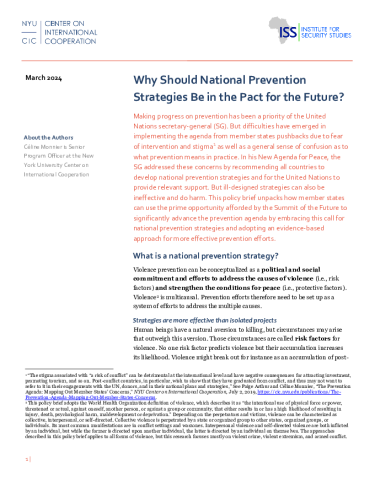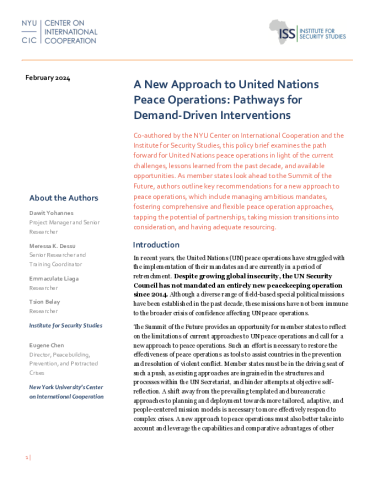Making progress on prevention has been a priority of the United Nations secretary-general (SG).
But difficulties have emerged in implementing the agenda from member states pushbacks due to fear of intervention and stigma as well as a general sense of confusion as to what prevention means in practice.
In his New Agenda for Peace, the SG addressed these concerns by recommending all countries to develop national prevention strategies and for the United Nations to provide relevant support. But ill-designed strategies can also be ineffective and do harm. This policy brief unpacks how member states can use the prime opportunity afforded by the Summit of the Future to significantly advance the prevention agenda by embracing this call for national prevention strategies and adopting an evidence-based approach for more effective prevention efforts.

